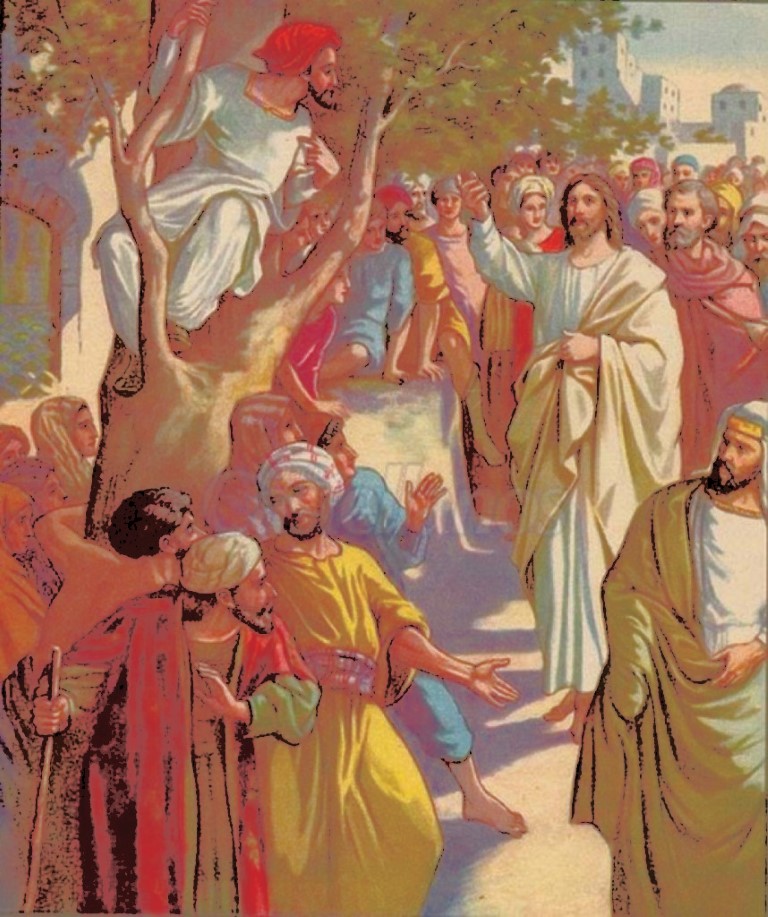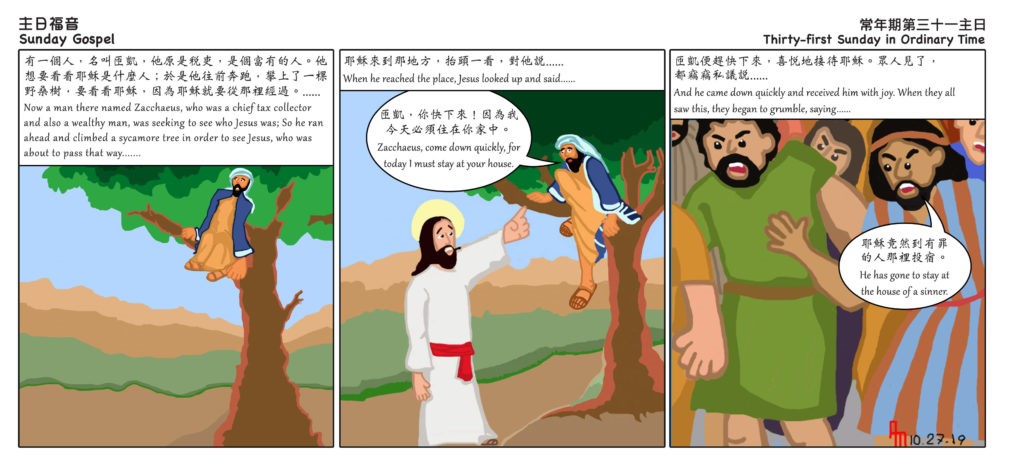Luke 19:1-10
– Fr Fernando Armellini SCJ
Claretian Publications, Macau
In today’s passage, it is Zacchaeus – a publican, considered to be evil by all – who is in search of Jesus. By a strange twist of fate the name he carries means pure, righteous. He is short in stature – symbolizing how he appears in the eyes of all. Zacchaeus is well aware of his condition.
He had everything in life, and yet is deeply dissatisfied. The need he experiences so irresistible that he is willing to risk the ridicule of the public. He wants to see Jesus because – he thinks – perhaps he is the only one who may understand his anxieties and inner drama, and he goes up the sycamore tree to see Jesus.
Zacchaeus has heard of Jesus. He knows the harsh judgments he delivered on wealth, but he also knows that he is “the friend of publicans and sinners” (Lk 7:34).
In Zacchaeus, even those who follow Jesus can see only the publican, the sinner, the loan shark, no one else. Their discriminatory attitude is like that of the Pharisees. The sight of these “pure” people is so bad that it sees evil everywhere, even where there isn’t: in Jesus. “Zacchaeus, come down quickly, for today I must stay at your house.” None of the crowd has pronounced this name because Zacchaeus is “unclean.” Only Jesus calls Zacchaeus – “pure!” For him he is “pure” and he is also a son of Abraham.
From above he sought to see Jesus but now it is Jesus who, from below, sees him first. In front of the sinner, Jesus always raises his eyes because his position is of the servant, who humbled himself for the salvation of all! What have those who looked down on Zacchaeus got? Nothing. With no appeal, their sentences have done nothing but to make him wicked. The stern and grim looks of the censors, judges, prosecutors, only block the unique look that saves, that tender look of Christ.
The story ends with a dinner.
We observe who is inside the banquet and who is outside, who celebrates and who is sad. The “righteous” should be inside, instead; they’re all out to murmur, to fret with rage, because they don’t agree with the type of guests Jesus wanted to fill the hall.



 Follow
Follow


